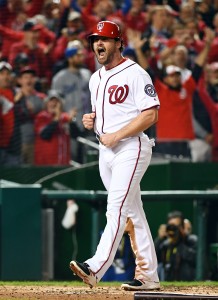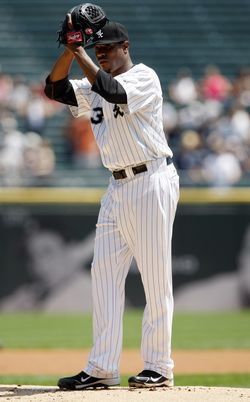On April 26, 2010, Ryan Howard was a star. For four consecutive seasons, the Phillies first baseman had landed in the top five of the National League MVP voting and swatted over forty home runs. With the Phils in the midst of a five-year run of dominance, the sides linked up on a five-year, $125MM extension.
It’s easy to mock that contract now, with the Phillies still paying down the final portion of it — a whopping $10MM buyout of a $23MM option for the 2017 season. Perhaps the organization believed at the time of the signing that the $13MM decision would be an easy one, but surely since-departed GM Ruben Amaro Jr. did not expect it would be so obvious to say goodbye to (rather than retain) the slugger.
With Howard now looking to make his way back to the majors on a minor-league deal with the Braves, his huge contract is no longer weighing down the Phillies. Instead, it serves mostly as a cautionary tale.
It’s easy to go overboard in criticizing the Howard contract, because we know what became of it. Though he continued to hit at an above-average rate in 2010 and 2011, while playing out the remainder of his arbitration-eligible seasons (which had been bought out under a prior extension), the actual years covered by the five-year deal were a disaster. From 2012 through 2016, Howard averaged 19 home runs annually while slashing a miserable .226/.292/.427.
But that outcome surely wasn’t the expected one at the time of the signing. Howard hadn’t yet suffered a devastating Achilles injury. His K/BB numbers hadn’t eroded to the point that they would. (In fact, he had posted 15% or better walk rates in two full MLB seasons — 2006 and 2007 — and had to that point never ended a full year with less than a 10.7% walk rate.) The swing-and-miss was always there, but Howard hadn’t yet seen his chase rate jump suddenly (it topped 30% in 2010 and kept going up from there).
That is to say: the Phillies weren’t wrong in assessing that Howard was a heck of a player. He was! And he gave them 64 dingers and a .265/.350/.497 batting line over the next two seasons, helping the organization to two more postseason berths. That sort of reduced-but- still-useful production might’ve continued had Howard not blown out his Achilles in making the last out of the club’s stunning 2011 NLDS exit.
Of course, while the Howard extension perhaps turned sour quicker than might’ve been anticipated, that doesn’t mean it was well-conceived. Even at his best, Howard was an extremely limited player; at the time of the deal, he was already thirty years old. And the real sin was committed in making the deal so far in advance of Howard’s free agency, at the end of his peak, and in expectation of a longer run of organizational success than could be sustained. This wasn’t exactly unforeseeable, either. As MLBTR’s Tim Dierkes wrote at the time: “The length makes this an unnecessary risk, and at $25MM a year the Phillies didn’t get a discount for taking the gamble and locking him up two years before free agency.”
The Phillies did not come up with a favorable bounce on their ill-advised dice roll. That’s clear. And the deal ended up costing the organization quite a bit of money that could have been reallocated — perhaps, to other players who might’ve helped extend the contention window. (Or, perhaps to other players who might’ve been signed to unwise contracts that would have deepened the eventual financial hole.) But here, too, it’s best to avoid dramatizing the impact. When the Phillies began dismantling their once-great core, Howard’s contract meant that he’d stay on — eventually becoming the lone remaining relic. But it’d be a bit of a stretch to say that the deal impacted the team’s recent decisionmaking, or changed the timeline for a hoped-for return to contention. The delayed rebuilding launch surely wasn’t driven by this one contract.
For the Phillies, the Howard contract proved to be something like the cost expended on a fancy diamond ring in a relationship that ultimately falls apart. When put in perspective, it’s hardly the thing that stings the most. And eventually, you can look back on it all with fondness despite the hard times. By the end, Howard was even able to be seen once more as a proud part of a golden era for the franchise. The Phillies organization will no doubt remember him just that way for decades to come … with the front office also constantly reminding itself of the lesson paid for in his contract.







